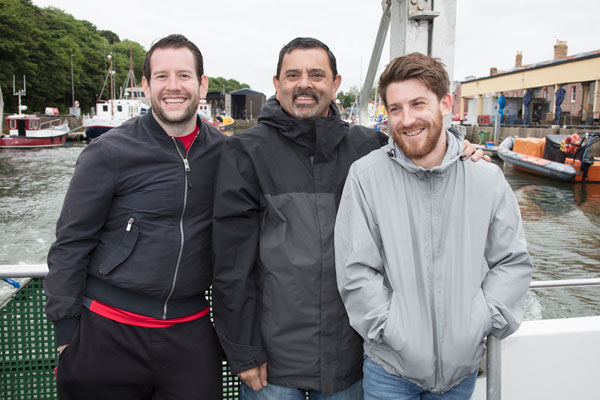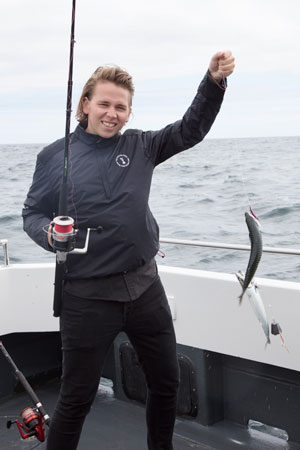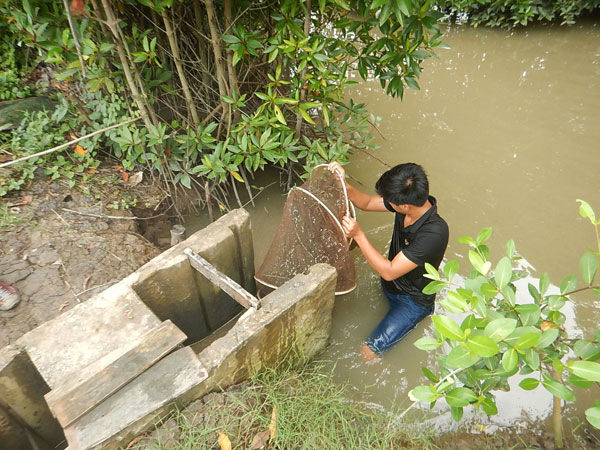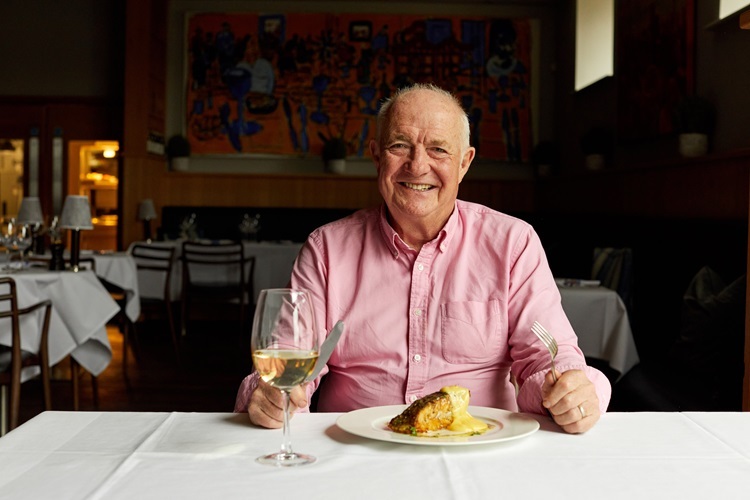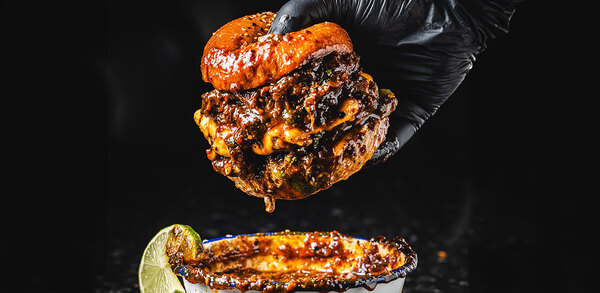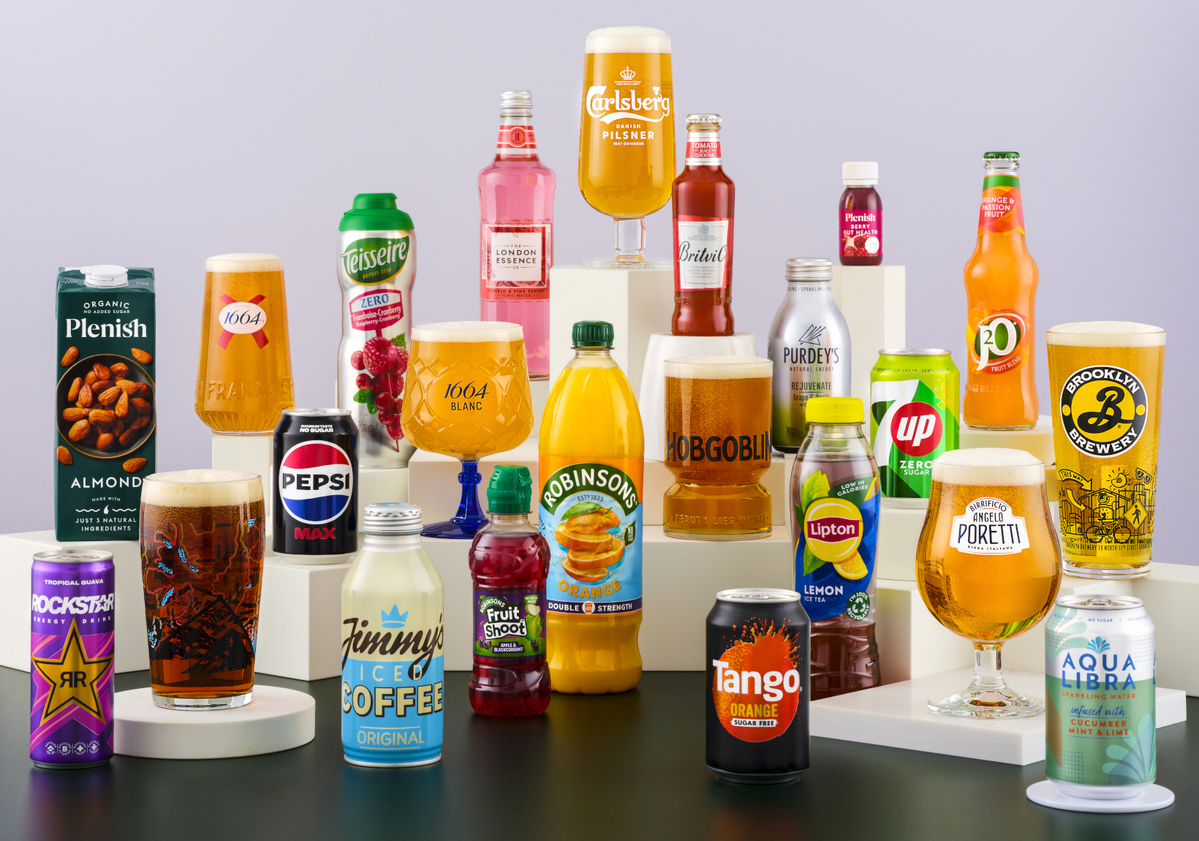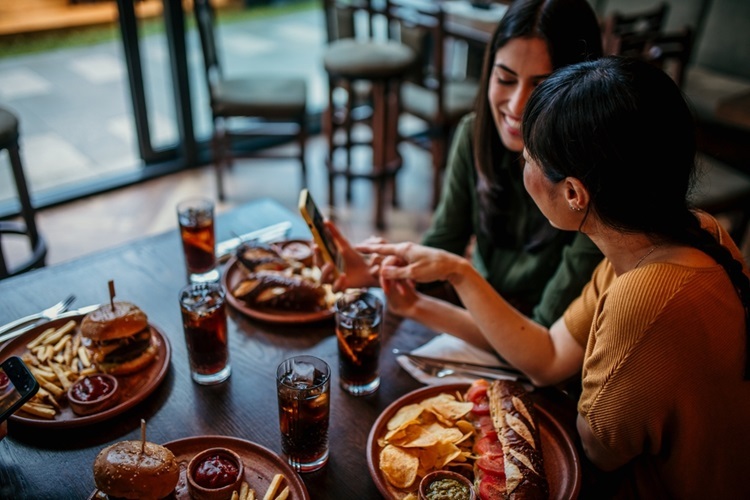The tide is turning: Catering for the sustainable-savvy diner
Diners are voting with their feet when it comes to sustainable seafood, and operators have a duty of care, not just to the species in the seas, but to their supply chain too. Lisa Jenkins reports on the state of sustainability and drops in on a chefs' trip to Scotland
Some, such as European eel and common skate, are actually endangered. The campaign supports the argument that swapping the seafood used in dishes to those from plentiful stocks is also in line with an ever-more savvy and environmentally aware dining public, who want to feel happy about the fish they eat and are prepared to pay for that. When the MCS polled the public in 2016, three-quarters said we should be consuming sustainable seafood only and more than half (54%) said theyâd be happy to pay for it.
Sam Jones, lead development chef for Compass UK & Ireland, agrees that the starting point for encouraging better consumer take up is to guide chefs to work with products that are sourced sustainability and to never serve any fish on the MCSâs âavoidâ list.
âYou have to engage the customer with the product and educate them to try different species,â says Jones. âFor example, gurnard is hard to sell against cod, and although everyone loves haddock, not many people know what it looks like. We have fish on the menu every day at head office and a fresh fish display on Fridays to encourage people to ask questions about what they are eating.â
Michael King, head of culinary for 14forty facilities management services, a division of Compass UK & Ireland, admits to being a âfish geekâ. He says: âThe company maintains a strong stance with fish. You have to think about how your products have been sourced and from where, and also about the way they are fished. Some of our top sites have MSC accreditation and I believe this will increase as customers become more demanding about their health and wellbeing.
âAt Compass we are also completely committed to adhering to our corporate responsibility âpillarsâ, and one of those is responsible sourcing, which includes human rights, slavery and general fishing practices.â
Stephen Oswald, chief executive of Bidfresh, which incorporates specialist businesses such as Direct Seafoods, Campbell Brothers Seafood and Kingfisher Brixham, says the quality of the fish that Bidfresh supplies is critical to its success.
Oswald explains: âCustomers assess quality based on an increasing array of criteria. Those criteria now include an assessment of the sustainability credentials of the fish, a measure of the ethics of the supply chain, the length of the supply chain and the eating quality of the fish. The criteria are in every buying decision, with some customers weighting things differently. As a result, we take all the criteria for the fish we sell seriously.
âWe vet all suppliers against food safety standards. We lean towards fisheries with certified sustainability credentials and smaller, well-run fisheries. We have begun a process of monitoring our supply chains to ensure that they meet ethical standards, and have joined the Ethical Trading Initiative to help guide us through this complex and daunting journey.â
José Souto, chef-lecturer at Westminster Kingsway College in London, has set up a buying policy for sourcing in conjunction with the collegeâs supplier, RAO Fish Merchants. This policy includes using the MCS âfish to eatâ website as a guide, which ensures the college is always buying the most sustainable options.
âAs lecturers, teaching the chefs of the future, we have a moral obligation to give the students as much information as possible about how to source and buy sustainable fish,â says Souto. âWe also work with associations such as Norwegian Seafoods, Alaska Seafoods and Seafish UK to give our students the knowledge they need to become better informed.â
Youngâs Foodservice is also attempting to educate its customers and has just released a new microsite aimed at schools following the recent news that 18% of five- to seven-year-olds believe that fish fingers are made from chicken.
Scottish sustainability
On a recent trip to Scotland, organised by Seafood from Scotland, chefs were shown an array of responsibly sourced fish. A trip to Eyemouth harbour for an inshore creel fishing trip, guided by skipper Derek Anderson, was the first port of call for the chefs â" James Devine, National Chef of the Year and chef at Noble in Holywood, Ireland; Lee Westcott, head chef at the Typing Room in London; Luke
Thomas, head chef of Lukeâs Dining Room; and Cyrus Todiwala, chef-proprietor of Café Spice Namasté. The Eyemouth trip was followed by lunch on the quayside, hosted by fish wholesaler DR Collin & Son, and then it was on to one of Collinâs depots for a tour of the facilities and a lesson in lobster husbandry.
Day two consisted of a visit to Alex Spink & Sons, which produces Arbroath smokies.
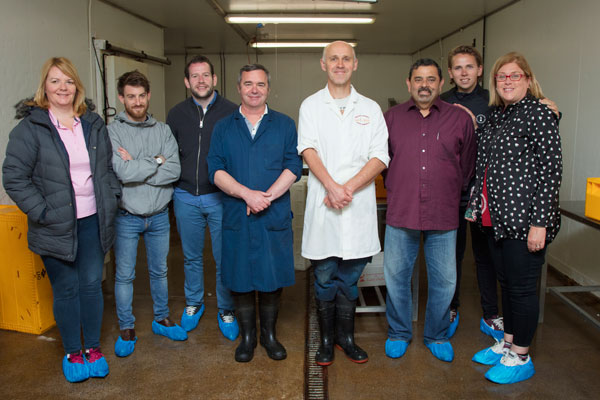
Finally, the chefs went to Kingsbarns Beach in Fife, the foraging ground for Mara Seaweed, which produces seaweed flakes that are sold to chefs and consumers worldwide.
Westcott says the trip helped to reinforce his sourcing policy: âWe only source fish that is in season and in abundance, and I believe this is the only way to ensure that we are doing our bit in keeping the stock levels of fish plentiful. I think our customers want to know we are doing our best to be responsible and sustainable, so we work closely with our fish suppliers and listen to them in terms of what we should be buying and using.â
Devine thinks people are definitely more conscious about where their food comes from, particularly seafood and, given the fact that we live on an island, that we should be more proud of our bounty and enjoy it ourselves rather than seeing so much of it exported.
âIn some instances, it is better to restrict the sale of a species until the stocks return â" as was the case with sea bass. However, using legal means to restrict the sale of a species can be a very blunt tool and is often too slow to affect any emerging problem. Therefore, the process of educating and informing consumers to avoid certain species or catch methods, slow and expensive as it is, is more robust.â
Responsible sourcing
The fishing sector is undergoing a raft of changes â" some are positive but some outcomes are less clear. Following a long ongoing campaign, Greenpeace has recently confirmed that seafood supplier Thai Union Group has committed to measures that will tackle illegal fishing and overfishing as well as improve the livelihoods of hundreds of thousands of workers throughout the companyâs supply chains.
Thai Unionâs new commitments build upon its sustainability strategy, SeaChange, which includes efforts to support best practice fisheries, improve other fisheries, reduce illegal and unethical practices in its global supply chains, and bring more responsibly caught tuna to key markets. Greenpeace Internationalâs executive director Bunny McDiarmid says: âIf Thai Union implements these reforms, it will pressure other industry players to show the same level of ambition and drive much needed change. Now is the time for other companies to step up and show similar leadership.â
The Conservative partyâs manifesto states the UK âwill be fully responsible for the access and management of the waters where we have historically exercised sovereign controlâ.
Trawlermen believe that might refer only to the 12-mile zone guaranteed under the 1964 London Fisheries Convention, as the 200-mile zone, agreed under a United Nations convention in 1982, was never implemented because of Britainâs EU membership. Alan Hastings, a spokesman for the Fishing for Leave campaign, says: âAfter their dubious manifesto wording, the only way the Conservatives can redeem their position publicly to avoid accusations of a sell-out is to affirm that the UK will take back control of our entire UK Exclusive Economic Zone and to exercise sovereign control over all the waters and resources within for the benefit of UK fishermen.â
Michael Gove, the secretary of state for environment, food and rural affairs, told the BBCâs Andrew Marr the change was about âtaking back controlâ of UK waters and that when the UK left the EU it would be an âindependent coastal state.â
The final word on sustainability
So, what exactly is responsible fish sourcing? Oswald tries to articulate this: âResponsible fish sourcing is being prepared to accept full responsibility for very aspect of the supply chain, including the environment, the social and ethical impact that the sourcing of fish has on the natural resources and the people in the supply chain. If sourcing fish has a negative impact on the environment, we need to source fish in ways that minimise that impact. Communities that fish for us can be hurt by the demands of the supply chain, which can distort their social and ethical wellbeing. We need to source fish to protect these communities and not exploit them. By accepting responsibility, we will begin to act, and through those actions we will protect fisheries and those that fish them for us.
âWe are at the beginning of a big project and still have a lot of work to do,â concludes Oswald. âBut in 2018, we will be in a position to start publishing some of our supply chains, which is a big step forward. We are doing this not because our customers are specifically demanding it, but because we feel responsible and believe that our customers expect us to act responsibly.â
Brindisaâs bacalao
Spanish wholesaler Brindisa sources responsibly yet further afield: the cod used for its salted cod (or bacalao) is fished in the Atlantic waters around Iceland and the Faroe Islands and processed by Bacalaos Alkorta.
Monika Linton, founder of Brindisa, explains: âFish can be problematic in terms of guaranteeing quality, provenance and sustainability. The Spanish, thankfully, excel at preserving seafood through salting, smoking and canning to extend longevity while creating national delicacies in the process.â
Bacalaos Alkorta, based in the Basque Country, has been processing cod for nearly 40 years. The cod is line-caught by small boats that fish daily and respect quotas.
Compassâs coley fishcakes
Calum Richardson, owner of the Bay Fish and Chips in Stonehaven, Scotland, works alongside Compass UK & Ireland to supply fishcakes to Compassâs offshore units. Richardson got together with Craig Foster of Larryâs Fishcakes to manufacture three versions of the fishcakes, all of which use responsibly sourced British fish, British potatoes and parsley.
Richardson and some young chefs made his fishcakes at the Compass Innovation Centre using coley â" an underused species of fish â" and smoked haddock. The fish was poached in milk, coated with Panko crumb and served on a bed of creamed leeks with a portion of pan-fried coley.
Contacts
Marine Stewardship Council Good Fish Guide www.goodfishguide.org, or www.msc.org/cook-eat-enjoy/fish-to-eat
Bidfresh www.bidfresh.co.uk
RAO Fish Merchants 020 7515 4848
Seafish www.seafish.org
Youngâs Foodservice www.youngsfoodservice.co.uk
The Sustainable Restaurant Association www.thesra.org, or www.foodmadegood.org
Seafood Scotland www.seafoodscotland.org
⢠Photos from Scottish fishing trip by Susie Lowe www.susielowe.co.uk/



